
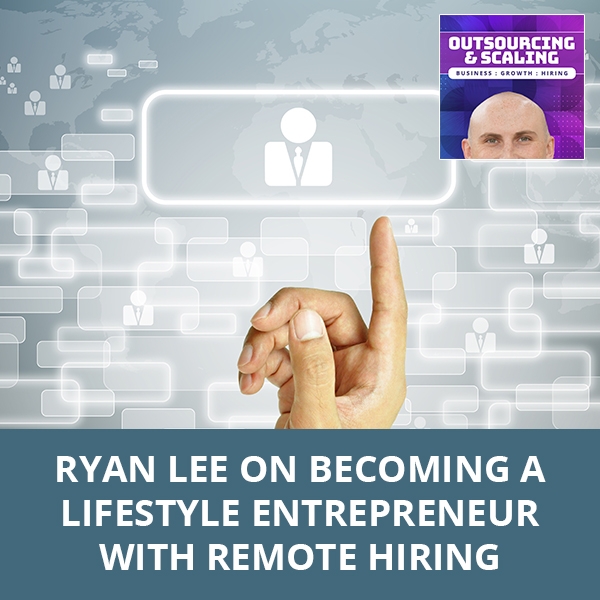
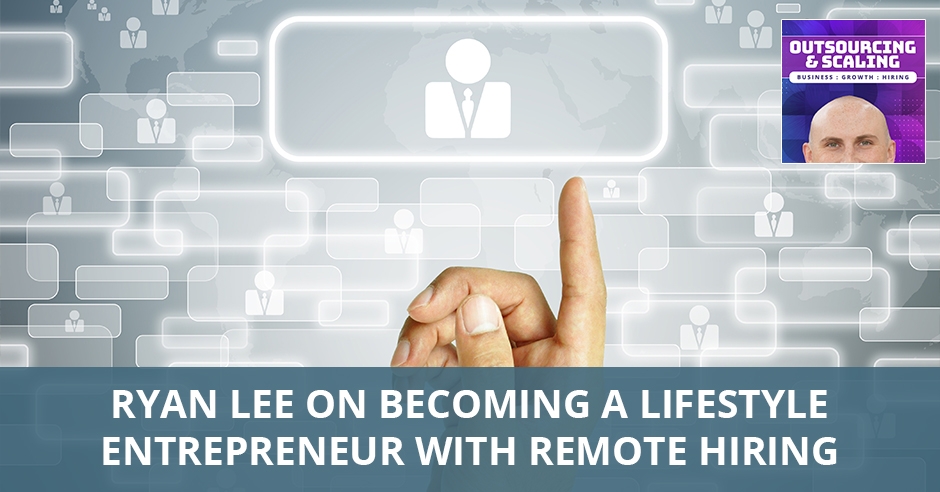
—
Listen to the podcast here:
[smart_track_player url=”https://www.podetize.com/statsapi/www.podetize.com/wp-content/uploads/fileuploads/11-5b145ef137b51b3d1af0633e9305c43d/07/2019/384e58aa7f43397355394b80b705b2bb.mp3″ title=”Ryan Lee on Becoming A Lifestyle Entrepreneur With Remote Hiring” artist=”Nathan Hirsch” image=”https://freeup.net/wp-content/uploads/2019/04/OAS.png”]
Download the audio file here.
Ryan Lee on Becoming A Lifestyle Entrepreneur With Remote Hiring
I’m here with Ryan Lee. Ryan, how are you doing?
I am doing great. I’m ready to rock this.
We’re excited to have you. Ryan is the Founder of Rewind, home of the world’s first nutrition super bar. He’s also the author of The Millionaire Workout and Passion to Profits. He was featured on the front page of The Wall Street Journal and called the world’s number one lifestyle entrepreneur by Entrepreneur. I want to talk all about being a lifestyle entrepreneur. Let’s take a gigantic step back to when you were growing up. What kind of kid were you? Were you a straight-A student or were you a rebel? Walk us through that a little bit.
I was not a straight-A student. I wasn’t a rebel either. I was a good kid. I listened but never studied. When I paid attention in class and I was able to listen and learn, I was able to retain it so I never studied. I’m a mama’s boy. As I was a young kid, I was not a good athlete, but I was always fast. That helped me get some confidence. I ended up becoming a captain in my track team in high school and even college for all four years. That gave me confidence. I was a regular kid. I was lucky to have grown up in a great neighborhood. We had a neighborhood of 110 homes. There were all kids of my age. I hit the lottery with my parents. They’re so supportive. They made me feel that I could do anything. I started my first business back when I was twelve years old. It was baseball cards. There’s a popular entrepreneur, Gary Vaynerchuk. We have very similar paths. That was my path. I started a baseball card business to the point where I was doing ads in magazines. I would type up on a typewriter price sheets for all these baseball cards. People would send me cash and checks in the mail. I’d mail out baseball cards. It was cool. I was doing it from the house.
You were an entrepreneur when you were twelve. Did you graduate high school or did you graduate college?
I graduated from college. I went to Ithaca College. My degree was in recreational therapy. My first job out of college, I worked in a children’s hospital for a few years. I did all of the recreational therapy. I spent a couple of years in the pool doing adapted aquatics. I did fitness, sports, and games. At night, I put myself through graduate school. I got a Master’s in Exercise Physiology. That’s when I started getting serious in training clients on the side. I was training them in the morning. I started doing youth sports training programs. I was training figure skaters, basketball and USTA tennis players. That’s when this whole world started to come together. This was now taking me to the end of 1998. I started doing sports training. I got serious about that business and said, “Let me set up this thing on the internet. This is popular. People are talking about it.” I set up a little website. I gave my neighbor Jonathan $20 to help me get the site up on the front page in 1998. That was the beginning. I was early in it.
A lifestyle entrepreneur is simply building a business around your life.
I almost went to Ithaca. I ended up going to Quinnipiac. What does a lifestyle entrepreneur mean to you? A lot of people throw that word around. To me, it’s the opposite of the hustlers working 60 hours a week. I’d love to hear your thoughts on what that means.
For me, it’s simply building a business around my life. That’s it. My wife and I have four kids. They’re nine, eleven, thirteen and fifteen. It’s building the business around my lifestyle and putting them first, putting them before money, putting them before my business. It doesn’t mean I slack off. It doesn’t mean I take naps all day. I schedule my time around that. They’re all active in sports. I’m home by 2:30 to 3:00. I’ve coached basketball, football, and soccer. I’ve coached all the sports. I drive my kids carpooling from 3:00 until 9:00 every night. That’s it. I know that’s my time so I get up earlier. I go to the coffee shop. I know you’re into virtual teams. My whole team is virtual. I have my morning huddle with my main righthand person, Kate, every morning to talk about all of our wins and all the big stuff. I’m out of the house early, but I’m home at 3:00 and then I’m all theirs. That’s it. I used to travel. Once a month, I would go speak at these big marketing events. A few years ago, I just stopped.
I said, “That’s it. I’m not going to do it anymore.” I walked away from a lot of money, but I’m okay with that. You might have to make some sacrifices, but you have to be okay with it. I get the whole hustle and grind and all that stuff, but I also don’t think it’s healthy. Your body needs to recover. You need recovery. Using the whole, “I grind seventeen hours a day,” as a badge of courage or a badge of honor, it does the opposite. You’re better off having one or two hours of super productive, focused, shutting everything off time than eighteen hours and staying up until 3:00 in the morning.
Let’s talk about remote teams. Does that come naturally to you? Some people that might be using FreeUp or using remote people for the first time are terrified by them. They’re used to the office. They might not have experience hiring people in general. Talk to me about how you got into that.
It took me three years until I hired my first person on a full-time basis. Even in the first year-and-a-half, I did everything myself. This is the late ‘90s so technology is not what it is now. There was no Facebook and streaming video. There was none of that stuff. All of the products I would sell were physical. I would go to Staples. I would photocopy things and put them in three-ring binders. I’d go to the post office with garbage bags filled with stuff and CDs and send them out. I did all the customer support. I did everything. I’m like, “This is not the most efficient use of my time.” At that time, I went on an Elance or whatever the iteration was before that. I hired someone to help with transcriptions. I knew that was not a good use of my time. She did one project and then another. I gave her more work. Slowly, I started to trust her to the point where I got busy enough and said, “Do you want to come on full-time?” She lived all the way in the West Coast. I’m in Connecticut and she was in Vegas. She stayed with me for several years. I was nervous about giving up a little bit of control and not have them face-to-face. This was a few years ago so it was different. Now it’s common and people are like, “I’ve got virtual assistants.” Back then, it wasn’t that common.
I put my toe in the water first and got comfortable with the person. Now it’s better to have it virtual because I did the whole office thing for about a couple of years and I did not like it. I got much less done. What I found was they’re less productive because half-hour commuting, you’ll lose an hour right there. If their kids are sick, they have to stay home. I’m like, “Stay home. Get your stuff done and keep in touch with me. Let’s have meetings and let’s do stuff, but you do you.” I want other people also to have a life. I don’t want them to have to work 24 hours a day. I want them to be happy. If they’re happy, they’re going to stick around. They’re going to be part of the brand and part of the culture. They’re going to be loyal. I have zero turnovers because I take care of them. They know they have the freedom and I know I’m going to let them put their family first too.
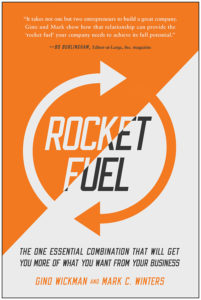
I’m in the same boat. I opened up an office a few years ago and it was the worst business decision I ever made. Not only the drama and stuff, but I almost felt that I was creating a 9 to 5 job for myself. I had to be there because if I wasn’t there, nothing was getting done. Let’s talk about your first hire. How did that go? Do you have any hiring horror stories?
The virtual hire was Dimitri, who’s with me for a long time and did the transcriptions and then another project. She was with me for seventeen years. I sold my company called Freedym and said to her, “Stay with them. Do that because I’m building this new company, Rewind.” What she was doing with Freedym was great and I’m like, “This is a better move for you. Stay with them as I sell to them and then I’m starting over.” Here’s a horror story. When I was doing the CDs and packing up and doing all that stuff, we had a condo at the time in Stamford, Connecticut. I needed help. I talked to one of our neighbors and said, “I’m looking for help. Do you know anyone?” He said, “My daughter can help.” She was sixteen or seventeen at the time. She would come an hour or two after school, help me out, pack all the CDs and do all this stuff. She was a little off or maybe a little strange, but that’s fine. She was just packing CDs and doing that stuff.
She said, “Do you mind paying me cash?” I said, “It’s fine, no problem.” I gave her cash for the week. She came back and said, “I lost the money you gave me.” I was like, “I’m sorry.” She goes, “Can you give it to me again?” I said, “What do you mean?” She said, “I lost it. Can you pay me that again?” I said, “I already paid you.” She was like, “I know, but I lost it so I don’t have that. Could you give me the money again?” I said, “You don’t understand. I already paid for you. That’s your responsibility.” For an hour, she could not get it. I was like, “That’s on you.” That was the end of that working relationship.
You have a remote team and you want to manage them. You want to have meetings and structure. Can you tell people how you structure that? A lot of people struggle on how to do that effectively.
There are a few things. When you’re an entrepreneur, you don’t want to start hiring full-time people right out of the gate, especially if you’re not funded. It’s much better to find people who are project-by-project and variable type stuff, be able to control your costs, keep them virtual and don’t have that big office. You don’t want to get to the point where it’s you and you have 30 people answering to you directly because then that’s a nightmare. All you’re doing is managing people all day. The way I like to structure it is I have my right-hand person or my operations person. Some people call them your integrator. There’s a great book, Rocket Fuel, where they talk about the visionary and the integrator. The integrator in this business is Kate. The way it runs is every single morning at 9:00, Kate and I have what’s called our morning huddle. It’s anywhere from ten to twenty minutes. This is the structure of how I run everything.
First thing before we do anything before we get in the weeds, I say, “What are your wins? What were the wins from yesterday?” We start off with the wins. We had this great email, we got this new thing, the new flavor was approved. I share my wins and we go, “What are we working on?” We go through the project by project stuff and that’s it. We have a customer service person who reports directly to Kate. Kate will give me the, “Here’s what we’re doing with customer service.” She’s talking to the people who are taking care of the fulfillment company. I interface a little bit more with the graphics person, but she’s talking to the tech person. All of these people report to her and she reports to me, rather than me trying to micromanage and manage every single person. We’ve also tried every type of project management software. Right now, Kate and I just use a shared Google Doc and that’s it. It’s one document. Here are our to-dos. We share. We cross things off. If I have a little note, I put it in there. That’s not hard to do and it’s simple. That’s how we’re running this big business, especially a physical product business with lots and lots of moving parts with products, inventory, fulfillment, eCommerce and all this stuff. We’re doing it with a morning huddle. It’s so much more freeing because I could give it to her and she then manages.
You might have to make some sacrifices along the way of becoming an entrepreneur, but you have to be okay with it.
Talk to me about being a leader. Are you a natural leader? You said you had low turnover. A lot of times, that has to do with leadership. Is that something that you developed over time?
I’ve always been a leader. When I was an athlete in high school, I was voted captain of my track team. In college, I was a captain. Even in college, I was given the leadership award for my department. I guess I had natural leadership ability. Leadership comes down to one thing and one thing only. It’s integrity. My team knows they can trust me. It’s about trust. Whoever I hire, whether it’s using a system like FreeUp or whatever the program, however, they come into my world, the skills are secondary. Anyone can learn WordPress. Anyone could learn how to set up Pixel. Anyone could learn this stuff. What you can’t learn is that passion and that feeling like, “I’m here to serve other people.” That is more important. It’s finding those people with a big heart. I’ll say from the beginning, “We are here. If you want to be part of this team, Rewind, we’re here to change people’s lives.” It’s not about working twenty hours a day and what’s the benefits. I don’t even talk about that. Even when I’ve done ads in the past, I’ll say, “I don’t care what’s your experience. Don’t send me a resume. If you send me a resume, I’m not even going to talk to you. I don’t care about your resume,” because they make up crap.
I facilitate the customer experience. You can’t BS a BS guy. I’m from New York so I know when you’re full of crap. I say to them instead, “Write me a letter about why you’re the right person for this job.” I just get into the emotion of it. It’s about being part of this brand and changing people’s lives. It’s never been about the money. It’s about doing the right thing and treating people well. Those are the only people I want. I will take someone who’s a less gifted person, but someone who’s got a little bit of the hunger. I’ve always gravitated towards those types of people.
You sold your business. What was that process like?
It was a great business. It was a membership site. It’s teaching entrepreneurship. I started in health online. That was my first thing, sports, and fitness. I had the world’s first sports training membership site. I got pulled into this world of teaching entrepreneurship, but I was not as excited about it anymore. It wasn’t my thing. I went through some health challenges on my own. When I got my health back, I want to create this bar because that’s how I was able to do it, start winning in the morning. I just wasn’t as excited about entrepreneurship anymore and teaching it. I was trying to figure out, “How am I going to exit this?” Two of my members are guys that I’ve trained that started with nothing online and doing well. I said, “You are smart. You pick things up quickly. You are action takers. You’ve got the right passion and you put people first. Are you interested in buying me out?”
It was a couple of months of the process of going back and forth. They were doing due diligence and looking at the books. We came up with a good deal. It’s something that made them and me happy. It’s been great. It was a smooth transition. I kept telling my members, “This is coming. This transition is happening.” I handed it off and now I’m focused 100% on building Rewind. It’s funny because people talk about, “I want to do this business, get it up and sell it quickly.” If you want to sell a business for $20,000 to $100,000, it’s not that complicated. People aren’t going to spend a couple of years doing diligence on a $50,000 deal. When you start talking seven-figure, eight-figure or nine-figure type of deals, it’s not as easy as people think. There’s a lot of work that goes into it. There are a lot of questions that are asked. How much are you infused in it? What’s going to happen if you leave, if they pull you out of it and the whole business falls apart? What does marketing look like? What’s the revenue? Is it flat? Is it growing? Is it going down? Is it trending? Is it going to be a strategic buyer or are they buying just for the money? There are a lot of things to consider when selling your company. This is the third or fourth company I’ve sold.
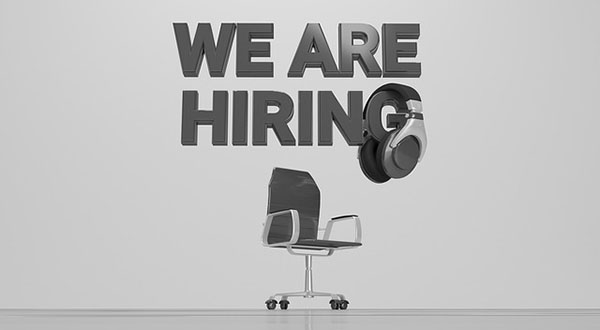
Talk to us about Rewind.
It’s a nutrition company. We’re focusing on our super bars. The bars are vegan, gluten-free and made with all superfoods. We have a new line of bars coming out that have only seven net carbs, four grams of sugar and the best taste in the world. That’s what we focus on, the good taste. Rewind has a retro theme and we’ve got the double meaning of rewinding the years. I’m going to be 47 and I’ve never felt better. There’s the rewinding a cassette tape or VHS tape. We play with that a little bit. We have fun with the brand. I don’t say it’s a miracle. I don’t say one secret to losing 50 pounds and, “We found this ingredient in this remote forest. We slaughtered the tribe to steal their vitamins.” I hate that. This is about being real and trying to help people, serve them, help them live a better life and wake up every day and smile.
Ryan, thank you so much for joining us. How can people find out more about you and more about Rewind? What are you most excited about?
Check out RewindBars.com. We’re on Facebook and Instagram. I’m excited to launch more flavors. We have coconut chocolate chip coming. We’ve got a mocha cappuccino, almond butter and jelly, vanilla cinnamon swirl and chocolate chip. Those are all going to be here soon. We’ve got about eight more flavors lined up. We’re going to work on mint chocolate. It’s going to be fun putting out these new flavors.
We’ve got Ryan who’s starting and selling businesses, all virtual and remote. Thank you so much for joining us.
Thanks. I appreciate it.
Important Links:
- Rewind
- The Millionaire Workout
- Passion to Profits
- Rocket Fuel
- RewindBars.com
- Facebook – Rewind Bars
- Instagram – Rewind Bars
About Ryan Lee
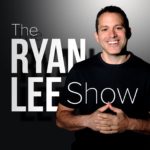 Ryan Lee is the founder of REWIND – home of the world’s first nutrition “Superbar”. He’s also the author of The Millionaire Workout, Passion to Profits, was featured on the front page of The Wall Street Journal, and called “the world’s #1 lifestyle entrepreneur” by Entrepreneur.
Ryan Lee is the founder of REWIND – home of the world’s first nutrition “Superbar”. He’s also the author of The Millionaire Workout, Passion to Profits, was featured on the front page of The Wall Street Journal, and called “the world’s #1 lifestyle entrepreneur” by Entrepreneur.
